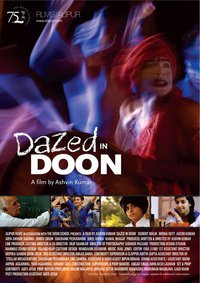
Dehradun, also known as Dehra Doon, is the winter capital and the most populous city of the Indian state of Uttarakhand. It is the administrative headquarters of the eponymous district and is governed by the Dehradun Municipal Corporation, with the Uttarakhand Legislative Assembly holding its winter sessions in the city as its winter capital. Part of the Garhwal region, and housing the headquarters of its Divisional Commissioner, Dehradun is one of the "Counter Magnets" of the National Capital Region (NCR) being developed as an alternative centre of growth to help ease the migration and population explosion in the Delhi metropolitan area and to establish a smart city in the Himalayas.

Kanti Prasad Bajpai is an Indian political scientist, international affairs expert, academic and the former headmaster of The Doon School, Dehradun, India. He is known to be an expert on Indo-China relations. He is currently Vice Dean and Wilmar Professor of Asian Studies at Lee Kuan Yew School of Public Policy (LKYSPP) of the National University of Singapore. Bajpai also writes a monthly column for The Times of India.
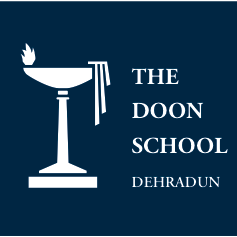
The Doon School is a selective all-boys private boarding school in Dehradun, Uttarakhand, India, which was established in 1935. It was envisioned by Satish Ranjan Das, a lawyer from Calcutta, as a school modelled on the British public school while remaining conscious of Indian ambitions and desires. The school admitted its first pupils on 10 September 1935, and formally opened on 27 October 1935, with Lord Willingdon presiding over the ceremony. The school's first headmaster was Arthur E. Foot, an English educationalist who had spent nine years as a science master at Eton College, England.

The Rashtriya Indian Military College is a military school for boys situated in Doon Valley, Dehradun in India. The RIMC is a feeder institution for the National Defence Academy, Indian Naval Academy and subsequently the Indian Armed Forces. Rimcollians, the name by which alumni of the RIMC are usually denoted, have gone on to hold the highest ranks in the Army, Navy and the Air Force of India, Pakistan and Bangladesh.

St. George's College, Mussoorie, is an all-boys boarding and non-boarding school in Mussoorie, in the state of Uttarakhand, India, affiliated to the Council for the Indian School Certificate Examinations board. The school, an all-boys residential and non-residential institution, spreading over 400 acres (1.6 km2) of land, was founded in 1853 by the Capuchin Fathers and entrusted to the Society of the Brothers of St. Patrick (Ireland) in 1894. It was opened in a cottage known as Manor House; the name by which the campus is still known. The students are known as Manorites.

Welham Girls' School is a private boarding school for girls located in Dehradun, Uttarakhand, India.
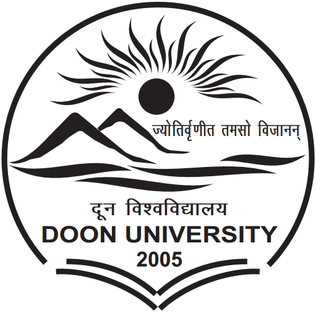
Doon University is a state public university located in Dehradun in the north Indian state of Uttarakhand.

Ashvin Kumar is an Indian filmmaker. He wrote, directed and produced India's only Oscar-nominated short film, Little Terrorist (2004), with his debut film Road to Ladakh being released in the same year. He also made the feature-length documentary films Inshallah, Kashmir (2012) and Inshallah Football (2010); feature-length thriller The Forest (2012); and coming-of-age tale Dazed in Doon (2010).

Peter McLaughlin is an Irish academic, historian, and educator. He is the CEO of Max Learning Limited, the educational arm of the Max Group. He was Headmaster of The Doon School. Before joining Doon in 2009, he served as Headmaster of Douai School, and Principal of the British International School in Cairo and of Casterton School in England. McLaughlin retired from Doon in May 2016.
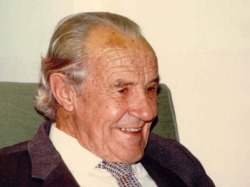
John A. K. Martyn OBE (1903–1984), was an English schoolmaster, scholar, academic and a distinguished British Himalayan mountaineer. He was the second headmaster of The Doon School.
Chand Bagh School is an independent boarding school for boys at Muridke in the Sheikhupura District of Punjab, Pakistan, approximately 40 km north of Lahore.

The Doon School Weekly is a student newspaper produced by and for the students of The Doon School. It was established in 1936, a year after the school's founding, by the first headmaster Arthur Foot. The Weekly is the oldest and flagship publication of the school.
"Lab Pe Aati Hai Dua", is a duʿā or prayer, in Urdu verse authored by Muhammad Iqbal in 1902. The dua is recited in morning school assembly almost universally in Pakistan, and in Urdu-medium schools in India.

Inshallah, Football is a documentary film by Ashvin Kumar about an aspiring footballer who was denied the right to travel abroad on the pretext that his father was a militant in the 1990s. The film was completed in 2010, and has faced difficulties getting released in India. The film's first screening in India at the India Habitat Center received this review from Tehelka magazine, 'Kumar's camera catches the irony of Kashmir's physical beauty, the claustrophobia of militarisation, the dread and hopelessness of children born into war and the nuances of relationships. It also filters the inherent joie-de-vivre of youth, even if that flows uneasily with Kashmir's collective memory of unmitigated grief...There is no better way to understand Kashmir right now.'. The film was shot by Kumar himself using five different camera formats "There is a rough, almost unpolished, feel to Inshallah, Football. The narrative runs unfettered, with an energy of its own." says Tehelka, "We shot with five different cameras, from DSLRs to the best equipment. The idea was to watch life unfold and get under the skin of the audience." adds Kumar.

The Doon School Old Boys' Society is the alumni society of The Doon School, an all-boys boarding school in Dehradun, Uttarakhand, India, founded in 1935. It is considered to be among the most influential old boys' networks in India, with its alumni including a former Indian prime minister, politicians, diplomats, officers of the defence forces, writers and artists. The first president of the society was the Englishman Arthur Foot, who was the first headmaster at Doon. Alumni of the school are known as Doscos and after graduating gain life-membership to the society.

Mountaineering is quite popular in India, since the entire northern and north-eastern borders are the Himalayas, the highest mountain range in the world. The apex body in India is the Indian Mountaineering Foundation, which is affiliated to the International Federation of Sport Climbing.

Matthew Jonathan Raggett is a British educator, writer and the former Headmaster of The Doon School, the all-boys boarding school in Dehradun, India. He succeeded Peter McLaughlin in 2016, becoming the tenth headmaster of the school. Raggett left Doon in January 2020 and returned to Germany. He was the fourth Englishman in Doon's history to head the school and was a member of The Headmasters' and Headmistresses' Conference, UK. Jagpreet Singh succeeded him as headmaster, and joined the school in June 2020. He is currently the Director of the Thuringia International School (ThIS), Weimar, DE.
No Fathers in Kashmir is an Indian drama film directed by Ashvin Kumar. Written by Ashvin Kumar, the film stars Zara Webb, Shivam Raina, Kulbhushan Kharbanda, Anshuman Jha, Natasha Mago, Sandeep Verma. The film was released on 5 April 2019.
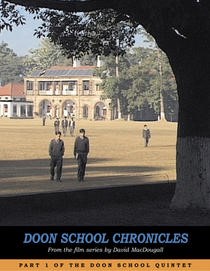
The Doon School Quintet is a five-part ethnographic film series made by the American visual anthropologist and documentary filmmaker David MacDougall, between 1997 and 2000, at The Doon School, an elite all-boys boarding school in India. For thirteen months over three years, MacDougall lived with the students and was given unprecedented access for filming inside the residential campus. By the end, MacDougall had more than 85 hours of material, which he edited into 5 parts, with a total duration of about 8 hours. The project ranks among MacDougall's most ambitious and longest works and is the only film series in his oeuvre.
